showing entries tagged "Savings"
by: IAMT
The Upside of Frugality
Frugal living discussions often talk about pinching pennies or “stretching a dollar.” A penny saved is a penny earned, or so the saying goes, but is that actually the case?
by: Banzia
Be Prepared, Because Life Happens
An emergency fund is an essential part of your personal finances. Its importance is stressed in almost every personal finance book and budgeting blog, and yet 26% of Americans currently have no emergency fund in place. Of those who do have an emergency fund, up to two-thirds do not have the often-recommended six months’ worth of expenses saved up.
by: Jean Chatzky @ SavvyMoney
6 Tips For Teaching Your Kids to Save
by: banzai
3 Jar Allowance for Kids
The sooner you teach your children the basics about budgeting, the better, and the 3-jar money system is a great way to get started.
by: Banzai
Leaving a Job with a 401(K)
When you leave a job with a 401(k), you’ll generally have four options for what to do with the money. Each has its own benefits and drawbacks, so deciding what’s right for you will depend on your situation and preferences.
by: Banzai
Certificate of Deposit
If you're willing to wait, a CD can be a great way to earn a high interest rate on the money you deposit.
by: banzai
Savings Accounts
If you're building an emergency fund, saving for a big purchase, or getting money together to invest, using an insured savings account can put you on the right road.
by: banzai
Opening Your First Account
Opening an account at a bank or credit union is the first step toward owning your personal finances. Best of all? It’s super easy.
by: IAMT
College Budget Breakdown
Most people ask, "How much does college cost?"—that’s the first mistake. It’s not to say this question isn’t answerable, but grouping college into one huge expense can be a little deceiving.
by: IAMT
The Effect of Time on Investing
Investing can seem like a very risky, complex and fast-moving process. With endless combinations of investment vehicles to choose from, it can be difficult to take your first step as an investor—especially with the knowledge that all investments carry the risk of losing some or all of your money. So why bother?



